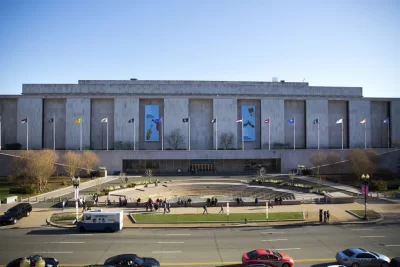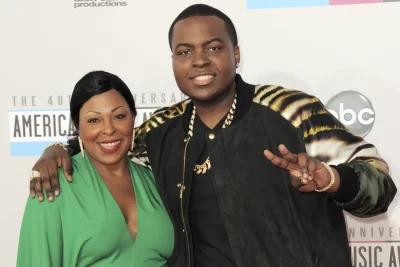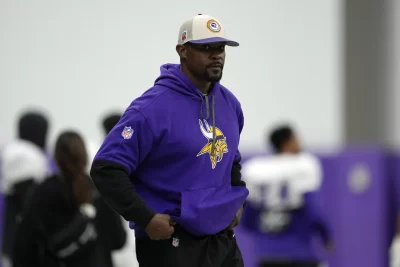
Before being assigned to investigate President Joe Biden’s son, Leo Wise built a reputation in Baltimore as a tough and hard-charging federal prosecutor, taking on powerful, and seemingly untouchable, figures — whether a gang of corrupt cops, a police commissioner, a top local prosecutor and even a mayor.
Wise’s backers call him talented and savvy, with a knack for navigating complex, headline-generating cases. To detractors, he’s stubborn and uncompromising as well as self-promotional: he wrote a memoir about one of his major cases while still employed by the Justice Department. His approach — aggressive in a way that has won him accolades but riled other lawyers — sets the stage for a contentious fight in the high-stakes prosecution of Hunter Biden.
“He holds everything very close to the vest, and he takes every possible advantage that he can take,” said Gerard Martin, a Baltimore criminal defense lawyer who calls Wise a “hard-ass.” “He’s not a guy you can go meet with and sit down and say, ‘Look, this is what my client says. This is what happened,’” and have that be taken into account.
Wise’s track record in Baltimore is newly relevant given his position as a lead lawyer in what is already a politically fraught prosecution. The case, overseen by special counsel David Weiss, is poised to unfold in the heat of the president’s 2024 re-election campaign and could give fresh momentum to a nascent Republican impeachment inquiry while drawing the White House deeper into questions about Biden’s relationship with his son.
The Justice Department declined to comment on Wise or make him available for an interview.
Hunter Biden is scheduled to be arraigned Tuesday. The Justice Department has not disclosed whether it will bring a tax indictment.
That Wise would be at the center of a media and legal vortex doesn’t surprise attorneys who have tracked his career. The Harvard Law graduate and avid runner was already an experienced prosecutor by the time he joined the U.S. attorney’s office in 2010, having served on Justice Department teams that pursued the tobacco industry and executives of Enron, the financial services company that collapsed in a notorious financial scandal.
Soon after arriving, he established a reputation as a premier public corruption prosecutor with a taste for big cases.
“Leo is an exceptionally talented and extraordinarily diligent lawyer,” Rod Rosenstein, Wise’s onetime boss as U.S. attorney in Baltimore before becoming deputy attorney general, wrote in an email. He called him “impervious to political considerations.”
In 2018, he secured a guilty plea from a former police chief who admitted he cheated on his taxes. The next year, former mayor Catherine Pugh pleaded guilty to conspiracy and tax evasion charges related to her self-published children’s books to nonprofit organizations to promote her political career.
Wise also netted high-profile convictions of members of the Baltimore Police Department’s Gun Trace Task Force who’d terrorized the city, robbing drug dealers and planting narcotics and firearms on innocent people. A prosecutor who worked with Wise on that case and others, Derek Hines, has also been assigned to the Hunter Biden prosecution team.
The police case spurred two books by journalists who covered the investigation, an HBO series and even a BBC podcast. In an unusual move for a sitting prosecutor, Wise penned his own account, titled “Who Speaks for You?” He has said he earns no compensation from it.
Isabel Mercedes Cumming, Baltimore’s inspector general, said Wise has proven successful in court because he is extremely detail-oriented and thorough in his preparation of corruption cases. He’s careful and balanced, always striving for the truth, she said.
“If you look at the highest-profile cases in the Baltimore area in the last few years, Leo’s done most of them,” Cumming said. “It’s not personal. It’s just a matter of the job you have, the job you chose, and doing it to the best of your ability.”
“Sometimes the cases make us controversial,” she said. “Sometimes controversy comes with the job. But you just do your job.”
Wise acknowledged as much in his book. He boasted how during his tenure at the Office of Congressional Ethics, a law journal profile described him as on his way to “becoming one of the least-liked lawyers on Capitol Hill.” It was a “badge of honor,” he wrote.
“As I quickly learned on the job,” he wrote of the ethics position, “going after the powerful doesn’t tend to make one popular.”
In Baltimore, not all of his recent prosecutions have been easy, or successful.
His case against the city’s former top prosecutor Marilyn Mosby — accused of perjury and mortgage fraud related to applications for relief during the COVID-19 pandemic – has been defined by acrimony.
Mosby’s former lawyer leveled incendiary accusations against Wise, including that he’d been motivated by personal animus in his pursuit of Mosby and had a history of targeting Black elected officials.
Wise said the claims had no merit, adding that he was only one of three prosecutors on the case and had no unilateral authority to seek indictments. During a hearing last year, he equated the attack-the-prosecutor strategy to “just like what Trump did.” Former President Donald Trump has repeatedly lashed out at federal and local prosecutors who have indicted him in four separate cases.
“Witch hunt, witch hunt, witch hunt,” Wise said. “That’s what the politicians always say.”
A judge sided with Wise and rejected the allegations. The case is set for trial later this fall.
The prosecution that caused Wise the most trouble went to trial in 2021, and he’s still grappling with the fallout.
The case concerned two prominent and well-regarded attorneys: Kenneth Ravenell and Joshua Treem. A year after Ravenell was indicted in a money laundering conspiracy case, Wise and colleagues charged Treem, who’d represented Ravenell earlier in the investigation, with obstructing the probe and creating false documents related to a meeting he had with a witness.
The charges against Treem roiled the city’s legal community, with defense lawyers aghast that a federal prosecutor would so aggressively go after an attorney with some 50 years of experience and pursue a case they saw as exceptionally weak.
Treem, who denied any wrongdoing and testified in his own defense, was acquitted outright. Ravenell was convicted of a single count.
The controversy extended beyond Treem’s acquittal. A brief Wise filed in Ravenell’s appeal that accused a major law firm of benefiting from laundered proceeds was swiftly withdrawn and corrected by his own office, a rarity for the Justice Department and a clear rebuke.
Andy Levy, a former law partner of Treem’s, said Wise “was pretty well-respected, not just for his legal ability, but I think people thought that he was a reasonable guy that could be trusted.” But, he added, the Treem prosecution was “such a colossal error of judgment” that it hurt his reputation in the legal community.
In a sign of lingering tensions, a Baltimore law club event at which Wise was slated to speak about his book was abruptly canceled in May amid opposition from Treem’s supporters. Wise was quoted by the Daily Record as saying, “I find it bizarre that somebody would object to the fact that I did my job.”
Wise’s assignment to the Hunter Biden investigation in Delaware came not long after he was replaced as chief of the public corruption unit in the U.S. attorney’s office in Baltimore. The personnel move followed clashes with office leadership, according to several people familiar with the office dynamics.
Even for a lawyer with extensive experience prosecuting prominent Baltimore figures, Wise will confront unique challenges in the Hunter Biden case, his every move certain to be dissected by the national media, presidential candidates and lawmakers; he’ll also square off against one of Washington’s most successful defense attorneys, Abbe Lowell.
Last week, Lowell asked the court to excuse Hunter Biden from appearing in person, citing the inconvenience of a cross-country trip and the public spectacle it would create.
In a hardball move, Wise and his colleagues balked, and a judge agreed. There will be no special treatment for the president’s son.
_____
Tucker reported from Washington.







